 Today we’d like to introduce you to Elise Belk.
Today we’d like to introduce you to Elise Belk.
Hi Elise, thanks for joining us today. We’d love for you to start by introducing yourself.
In May of 2004, I was a newly graduated, proud owner of both a Bachelor and Master of Music degree in Oboe Performance. If you had asked me then what my life and career would look like in 25 years, I couldn’t ever have dreamed up all the interesting career facets I would discover or unexpected avenues I would find myself taking. For me (and for many, I think), there is one option after graduation: you find the audition, take the audition, and (hopefully) win the audition. Happily, ensconced in my new position as Principal Oboe of the “Everything Worked Out Perfectly” Orchestra, I would spend my weekdays practicing, rehearsing, and making reeds. Then on the weekends, my colleagues and I would perform all the great repertoire to packed houses and receive rave reviews in the paper the next morning. That was how I thought it should go.
I grew up surrounded by music. In our family, we sang in choir. We played piano. We played Suzuki strings. And then, we chose our instrument of focus. I chose the oboe. Or rather, the oboe was chosen for me since there was one readily available, and as luck would have it, there was a wonderful oboe teacher a block away from our house. To top it all off, our town was home to the great Cleveland Orchestra and one of the most distinguished oboists of my time, John Mack. And so began years of lessons, band, and orchestra rehearsals and concerts, chamber and solo recitals, solo competitions, intensive masterclasses, and summer music programs. I would love to say that I was a well-rounded kid. I donned some little pink ballet slippers. I kicked a soccer ball for a season. But I really gravitated toward art, literature, writing, and, of course, music. It was what I did. It felt like who I was. It was the thing I did best. It was the only thing I really felt I should/could do.
And so, fast forward to 24-year-old me. I had just received a Bachelor of Music in oboe performance from Louisiana State University, under the masterful instruction of Linda Strommen, and then made it back to my hometown to earn a Master of Music in oboe performance from The Cleveland Institute of Music, studying with the great John Mack. What was next for me? Clearly the audition circuit, big orchestra job, perfect life. But if you throw in getting married at 22 (to another musician, no less) and trying to balance the whole “supporting your new life” thing while balancing the spouse’s schooling and trying to practice and take auditions, life can feel pretty overwhelming. And the whole “auditioning” thing? Pretty stressful. Very few people win the big job on their first try. I wasn’t one of the few. Like many who choose to travel the performance path, I struggled with feelings of not measuring up. We put so much time and effort into our art. We take a rejection as the most personal criticism of not just our playing but who we are. It takes courage and determination to push past those feelings and keep trying until you succeed, but that just wasn’t in the cards for me at that point in my life. And this isn’t to say that I wasn’t given wonderful opportunities to perform during this time. The failure of getting that big job was just overshadowing the quiet, gradual growth into who I am today.
So, here’s where life gets twisty. My husband graduated with his master’s degree in 2006 from the Cleveland Institute of Music and while we were both working to support ourselves, he was offered a job as a band director, far, far away in the great state of Texas. What is that saying? “I’m not from Texas, but I got here as fast as I could!” Other than crying homesick tears for 3 months and missing family terribly, moving to Fort Worth was one of the best decisions that we could have made. While my husband taught long high-school band director hours, I looked up local orchestras bands, and contractors. I called church choir directors. I sent resumes and recordings of my playing to anyone and everyone. I am really not one to put myself out there. I hate selling myself. I’m truly an introvert, but I networked as hard as I could. And I got a gig and another. I played at a church here and subbed with a symphony there. I even took a few local auditions – still no success there. But I met people: colleagues and contractors and directors who became friends and family. I taught private oboe lessons all over the DFW metroplex. I made dozens upon dozens of oboe reeds for students and band directors. Somewhere in the middle of that, we had kids (and dogs and rabbits and hamsters.) We spent time with family and friends. We attended concerts, dance recitals, and soccer games and chauffeured our kids to piano and cello lessons. We enjoy the Texas sunshine and don’t have to shovel 2 feet of snow in the winter.
One cold January day back in 2017, with the help of my sister, a fellow artist/entrepreneur, we opened the online store, Wildflower Reeds, and turned the dozens of reeds into thousands. I remember the day, time and place that first order came in. I’ve been busily filling orders since! The following year, I joined the faculty at Texas Christian University, teaching a small studio of aspiring oboists: a studio that has seen so much growth in recent years and is sending passionate young music educators out into the world.
All the while, I have had the privilege of playing in first-class ensembles in the area. I have played operas, ballets, musicals, chamber music, and symphonic masterpieces. I have played for paying patrons, for school children, those in assisted living communities, and for those who might not have the transportation or the resources to come hear a performance in the concert hall. I have played the old standard repertoire and premiered new pieces by local composers. I hope that through my music, I have brought joy at weddings, comfort at funerals, and a sense of God’s presence at worship services. And after all that, I finally took a local audition – and won. It couldn’t have been a more perfect fit. I have the most wonderful colleagues.
So, I, like many others, have not taken the traditional path. Not everyone wins the big job. Sometimes it feels like my career is cobbled together, but it is all intertwined in the very best way. Each aspect of my career pours into the next. It is my life. It is who I am. But it’s not for me. It is for the audiences – for those listening who need to rejoice or to be comforted. It is for the child picking up the oboe for the first time and marveling at their very first sounds. It is for the future educators who will instill and foster love for the arts for generations. Music is a gift, and those of us who are gifted are called to share it.
We all face challenges, but looking back, would you describe it as a relatively smooth road?
Of course, the biggest struggle being a musician is “How am I going to make a living?” Only the very biggest orchestra jobs can really pay all the bills without having to supplement with other sources of income. So, you have to win the audition. Auditioning can be a real beat-down on one’s ego. Not everyone is the right fit for every section or ensemble, but a rejection of our playing is such a personal thing for a musician. Our playing comes from our heart – from who we are. I have most certainly experienced this. And so, if you don’t win the audition, the next struggle is how to piece a career together. We gig. In fact, we take every gig that comes our way. Sometimes it means lots of driving, or unpleasant hours, or packing your schedule with every opportunity so tightly that you have no time to decompress and do things you enjoy or to simply practice fundamentals to hone your skills. I’ve experienced all of these challenges. At the time, it truly seems like the worst thing in the world and that life couldn’t be harder. But looking back, all of the obstacles were truly opportunities for growth. Was playing that high school musical a real drag? Well, you learned how to anticipate the timing when a singer misses a line or comes in late. You learned versatility and adaptability. You also never know who you will meet in every situation. They may be able to help you out down the road, or you may be able to offer a helping hand.
Apart from overscheduling, and having time to prepare all the various repertoire, finding the way to venues, and playing with colleagues you may never have met, an oboist’s biggest challenge is finding the perfect reed for the job. Oboists hand-make their own reed (mouthpiece) from a tube of cane (similar to the bamboo you see growing in the ditch on the side of the road.) Cane can be very finicky and susceptible to temperature and pressure changes, causing the reed play and sound differently from one day to the next. Each reed can sound different in particular venues as well. The reed you used in the Symphony Hall may sound completely different in the orchestra pit or in the cathedral sanctuary! Even as a very experienced oboist and reed-maker, making and finding the right reed is still a daily challenge for me. But it’s just one that comes with the territory.
Alright, so let’s switch gears a bit and talk business. What should we know about your work?
I was trained to be a professional musician, specializing in oboe performance. That really means that I should have a good understanding of the repertoire and performance practices and a technical mastery of my instrument to be able to play proficiently and artistically in any orchestral, chamber, or solo setting. But my career really consists of 3 major components at this stage in life. I do have an active performance schedule around DFW. In addition to playing Principal oboe in the Plano Symphony Orchestra and the Dallas Chamber Symphony, I do quite a bit of freelance work with other local orchestras. I also hold a position on the faculty at Texas Christian University as the Instructor of Oboe. I spend a good part of my week working with exceptional students, helping them to further their understanding of the oboe and doing just what I mentioned I learned in my studies. Many of my students are also studying to be educators – bringing the knowledge and passion for music to future generations! The third thing I do, and maybe the most interesting from an outside point of view, is run the company Wildflower Reeds. As an oboist, we have to create our own mouthpiece for the instrument in the form of a reed. It involves taking a cane called Arundo Donax and processing it to form two blades of cane, secured by thread, to a metal tube that vibrate when you blow air through them. We must painstakingly, and with a very sharp knife, hand-scrape this cane to get the reed to vibrate evenly and create a pleasing and in-tune sound on the instrument. An oboist must make the best reed possible for each piece, or venue, or style of music being played. Most professional oboists have all learned the skill of reed-making and are proficient at crafting their own reeds to their specific needs. But many students or players who prefer to play as a hobby either have not learned the art of reed-making yet or simply don’t have the time to spend honing the skill. The idea for Wildflower Reeds really came about as I was making dozens of reeds every month for my own private students and band departments in the local school districts. It was suggested (many times before I finally agreed) that I start an online store to begin streamlining the order, payment, and shipping processes, but the thought of building a website and setting up all the record-keeping was terrifying to me! Luckily, I have brilliant family that set everything up for me and got it off to a running start. Now what I get to do in all of my “free time” between performing and teaching is create hundreds of oboe and English horn reeds which I ship all across the country, and even internationally. I have different levels reed strengths available for all kinds of players, but I think the thing that my customers like most is having a “Flower of the Month” color of reed thread. I started with the idea of choosing colors that corresponded with whatever wildflowers were blooming in North Texas that month. I think it’s a great way to get creative with a task that can sometimes become monotonous – tying reed after reed. But I always feel a little joy bringing out the fresh colors for the new month.
Do you have recommendations for books, apps, blogs, etc?
There isn’t too much of this type of media that is useful for either teaching one how to play the oboe or make reeds. I will say that I’ve listened to many a podcast of a myriad of subjects for entertainment to help me get through long hours at the reed desk though! And I always encourage my students to listen to recordings of their favorite oboe artists or to listen to recordings of the pieces they are performing to get ideas or to imitate phrasing and musicianship.
Contact Info:
- Website: www.wildflowerreeds.com
- Instagram: instagram.com/wildflower.reeds/
- Facebook: https://www.facebook.com/WildflowerReeds
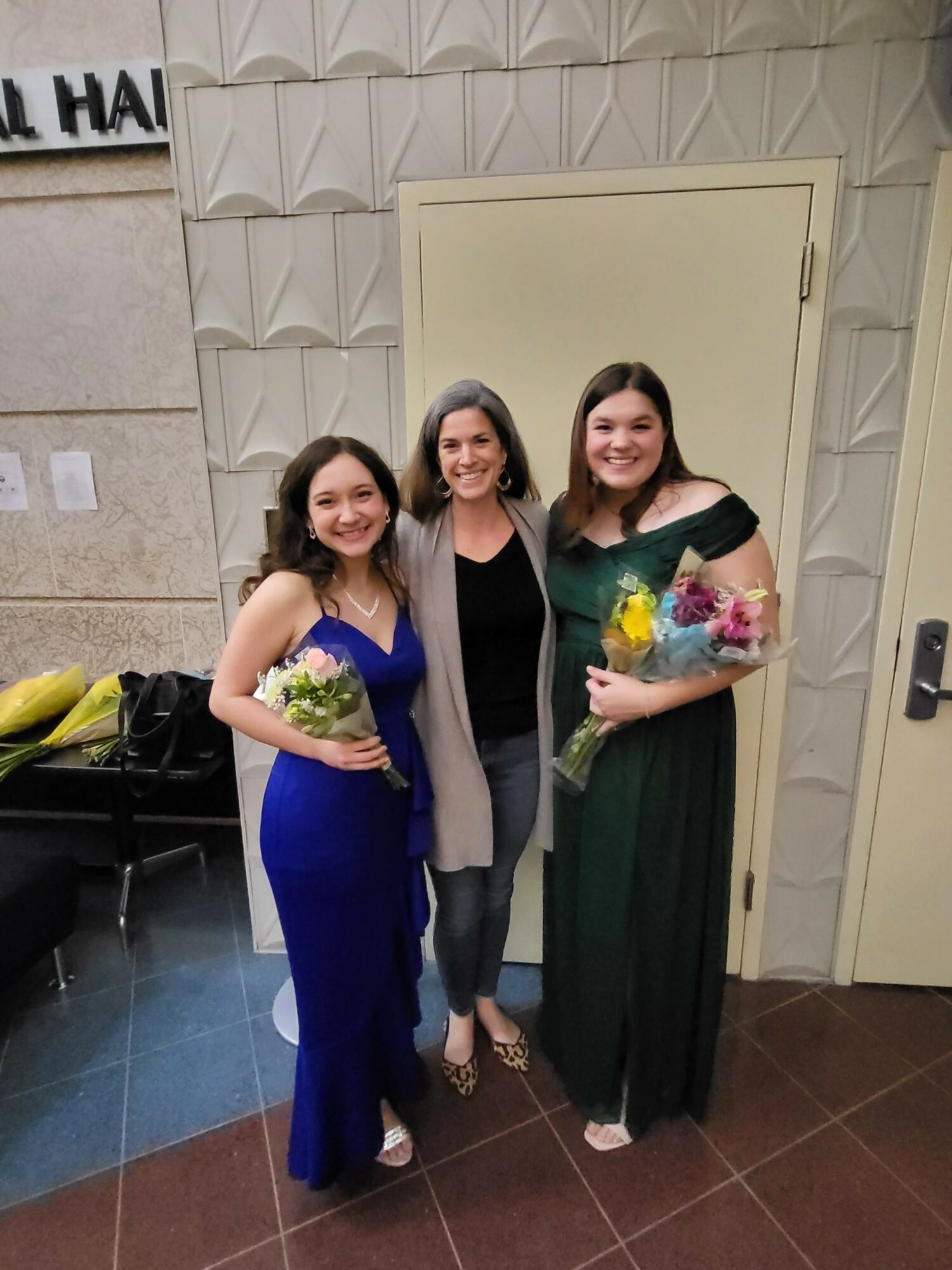
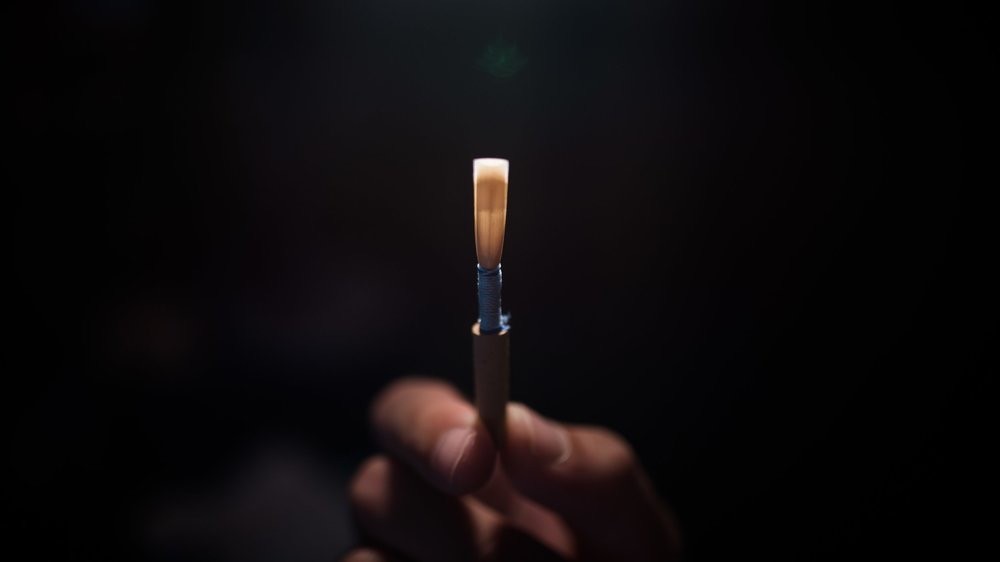
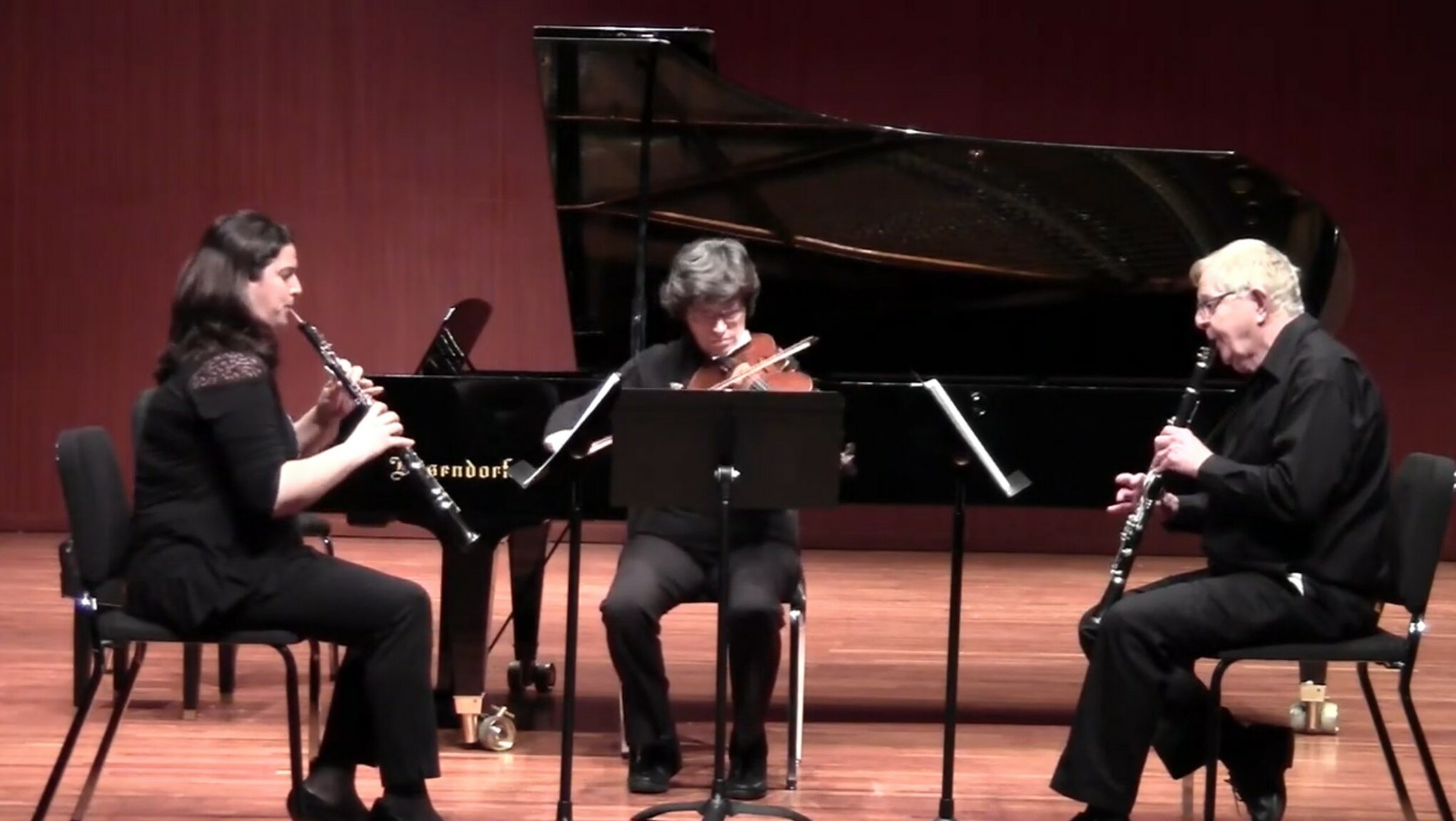
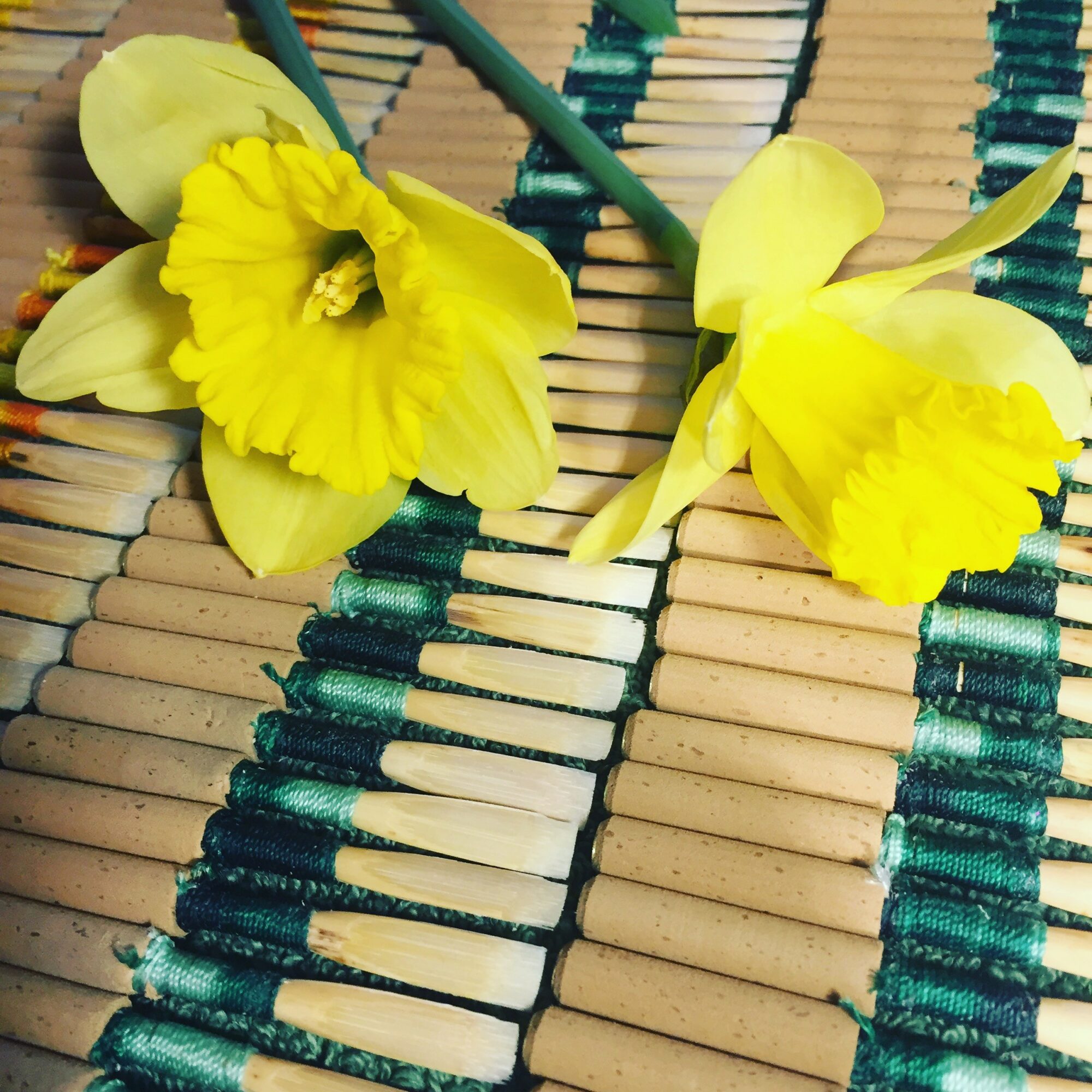
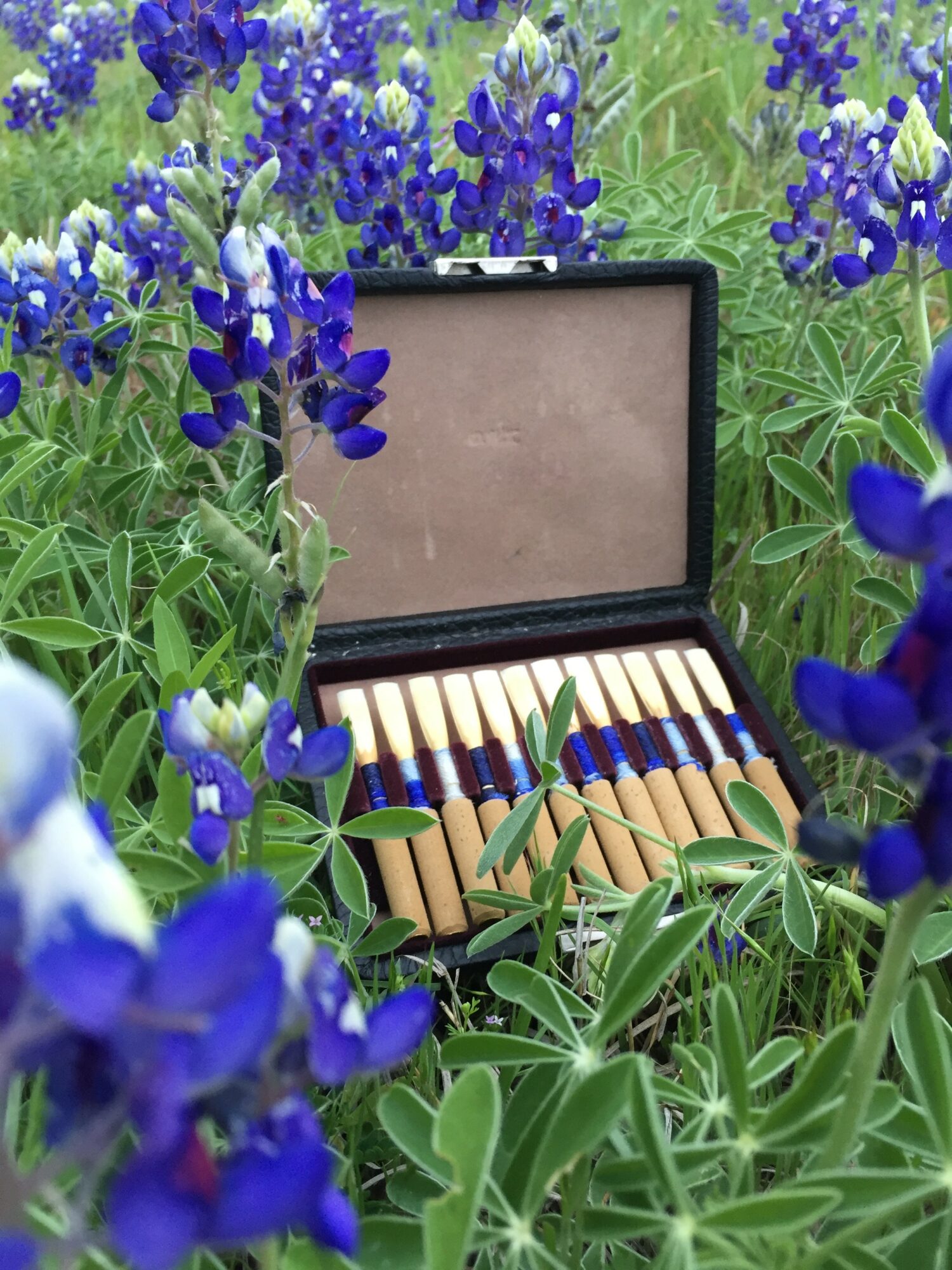
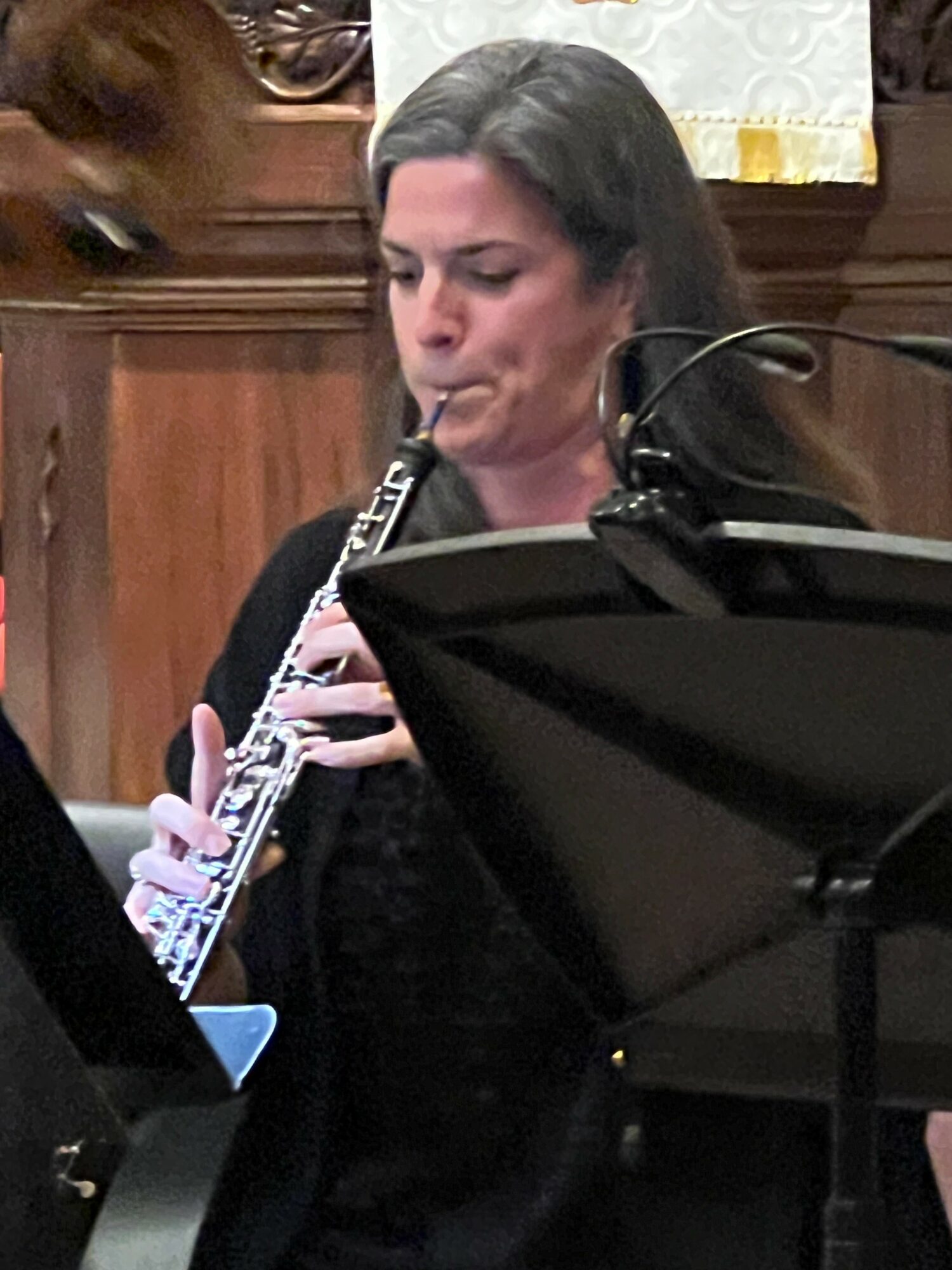
Image Credits
Abi Poe Photography










